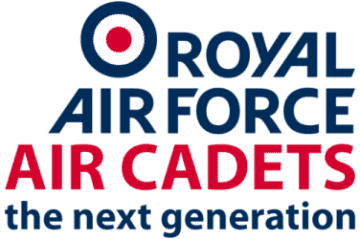Today, the Royal Air Force has released a report following an inquiry regarding recruiting and selection practices. A statement from Air Chief Marshal Sir Rich Knighton, Chief of the Air Staff, can be viewed below and the full report can be viewed here.
Last September, my predecessor, Air Chief Marshal Sir Mike Wigston, instigated an independent non-statutory inquiry (NSI) into RAF recruitment and the circumstances that had led to the resignation of the then Group Captain Recruiting and Selection. I fully supported Sir Mike’s decision to convene the inquiry.
The NSI has now concluded and will be published today. It makes 12 recommendations, all of which I have accepted. The recommendations either have been, or are in the process of being, implemented in full. I would like to thank the NSI team for its thorough work, and everyone who participated for their time and their openness. This has been an important process and I’m grateful for the patience shown by those affected while the investigation was conducted, and the report was compiled; it was important that it was given the time to be done properly.
In September 2022, we acknowledged that the RAF had made mistakes in the way we had offered places on training courses to people selected to join the RAF. The NSI confirmed that in 2020 and 2021, a total of 161 enlisted aviators, who were either women or from ethnic minority backgrounds, were accelerated onto initial training ahead of other candidates.
The belief at that time, based on the understanding of the recruiting process and interpretation of the legal advice, was that this practice demonstrated acceptable, positive action. We now know that it did not, and I apologise unreservedly to all those affected.
We accept that some men were discriminated against. This included a group of 31 individuals, who likely missed the opportunity to qualify for a £5000 joining bonus. We have identified those people and are retrospectively offering to award them any financial payment they missed out on.
Those involved in Recruiting and Selection throughout this period acted with the best of intentions; but it is clear that people responsible for implementing these policies did raise concerns at the time, and the way in which long-term aspirational goals set by senior leadership to improve diversity in the RAF were translated into personal performance targets was wrong. I apologise unreservedly to the Recruiting and Selection team and the former Group Captain Recruiting and Selection for the cumulative pressure placed on them to achieve those aspirational goals.
Those who joined the RAF during this period met the necessary standards, and so entered the RAF on merit. The people who were accelerated into training had already passed all of the RAF’s selection criteria and assessments, so there was no compromise of entry standards and no impact on operational effectiveness.
I know the NSI and the circumstances that led to it resulted in the RAF experiencing intense levels of media scrutiny. This has had an effect on the morale of the people in the RAF, and it has been particularly unsettling for those working in our Recruiting and Selection teams. We are ensuring that personnel identified within the report are supported appropriately.
We will learn the lessons from the NSI. We have rigorously scrutinised our recruiting practices and continue to monitor our recruitment processes. We will not make the same mistakes again. While I remain determined to improve levels of inclusion and diversity in the RAF, we will ensure that our methods are beyond reproach. We are working hard to restore trust and confidence in our recruitment processes, and I am hugely grateful for the hard work of the Recruiting and Selection teams right across the country who continue to achieve the best recruiting performance in defence.
The RAF has prided itself over its 105-year history on being a meritocracy, where someone’s ability and potential has always mattered more than where they came from or what they looked like. The RAF will continue to be a meritocracy and we will always aim to attract the best people from the widest talent pool, to help make the RAF the most operationally effective force it can be.
Air Chief Marshal Sir Richard Knighton,
Chief of the Air Staff




